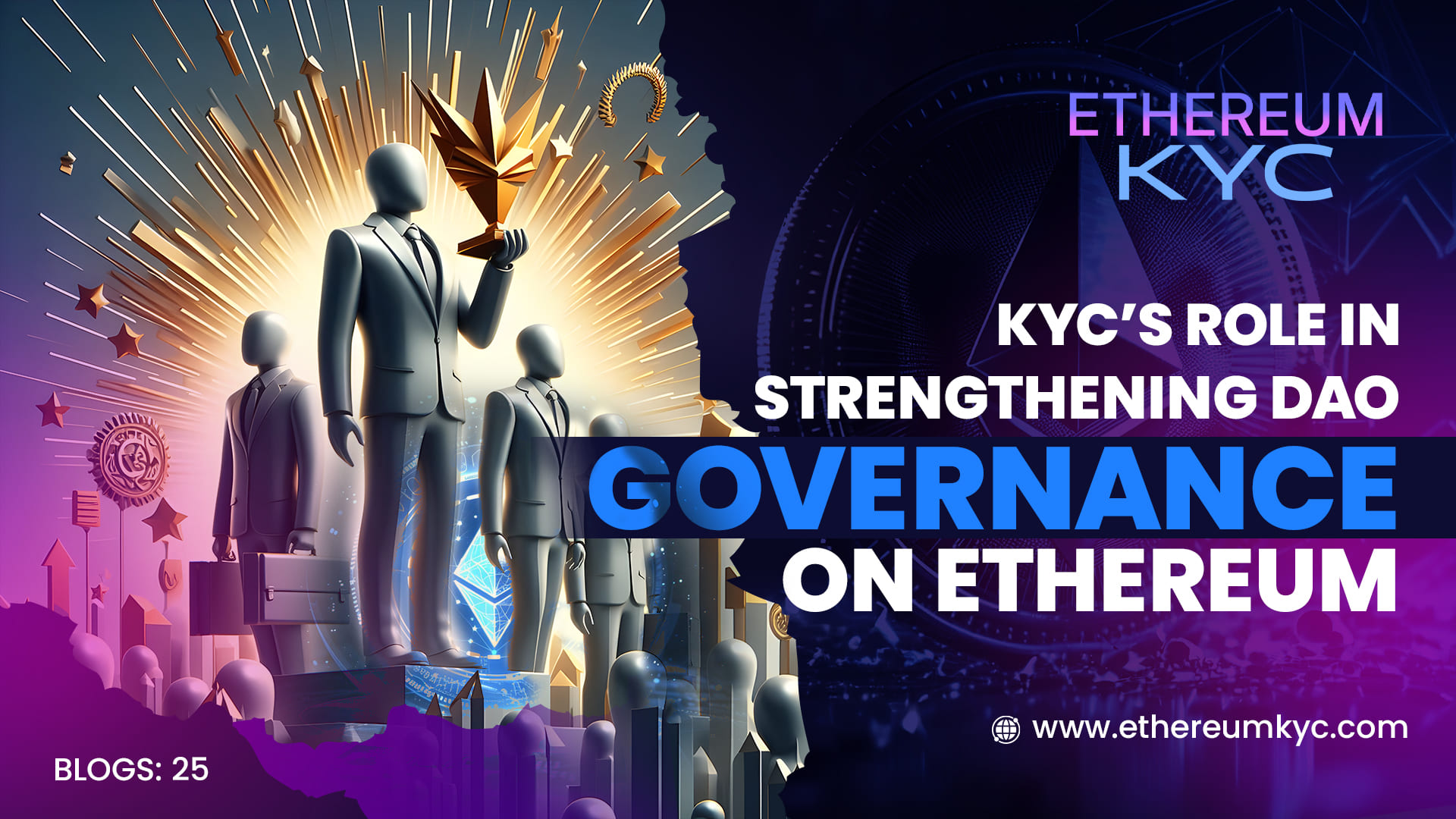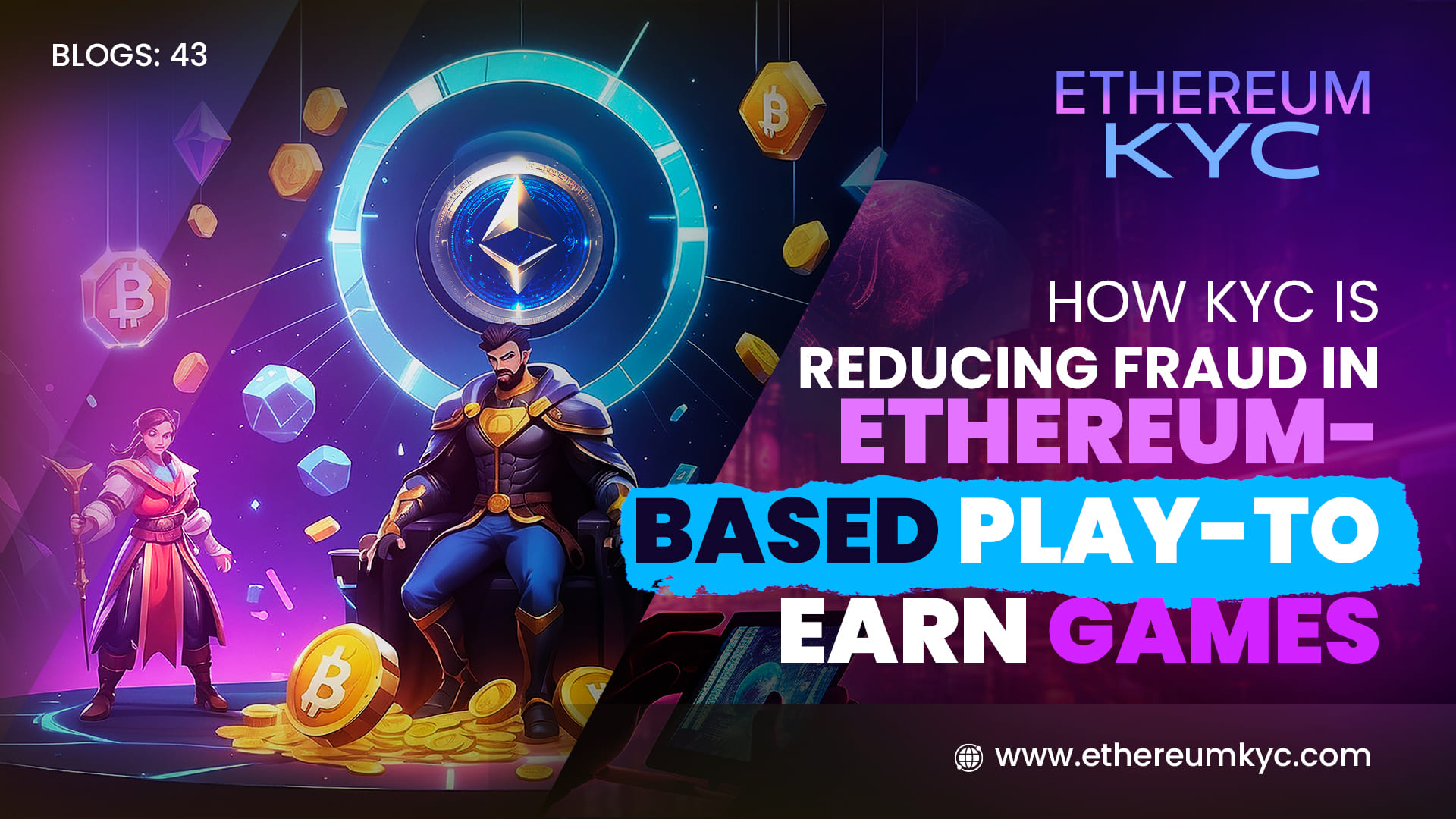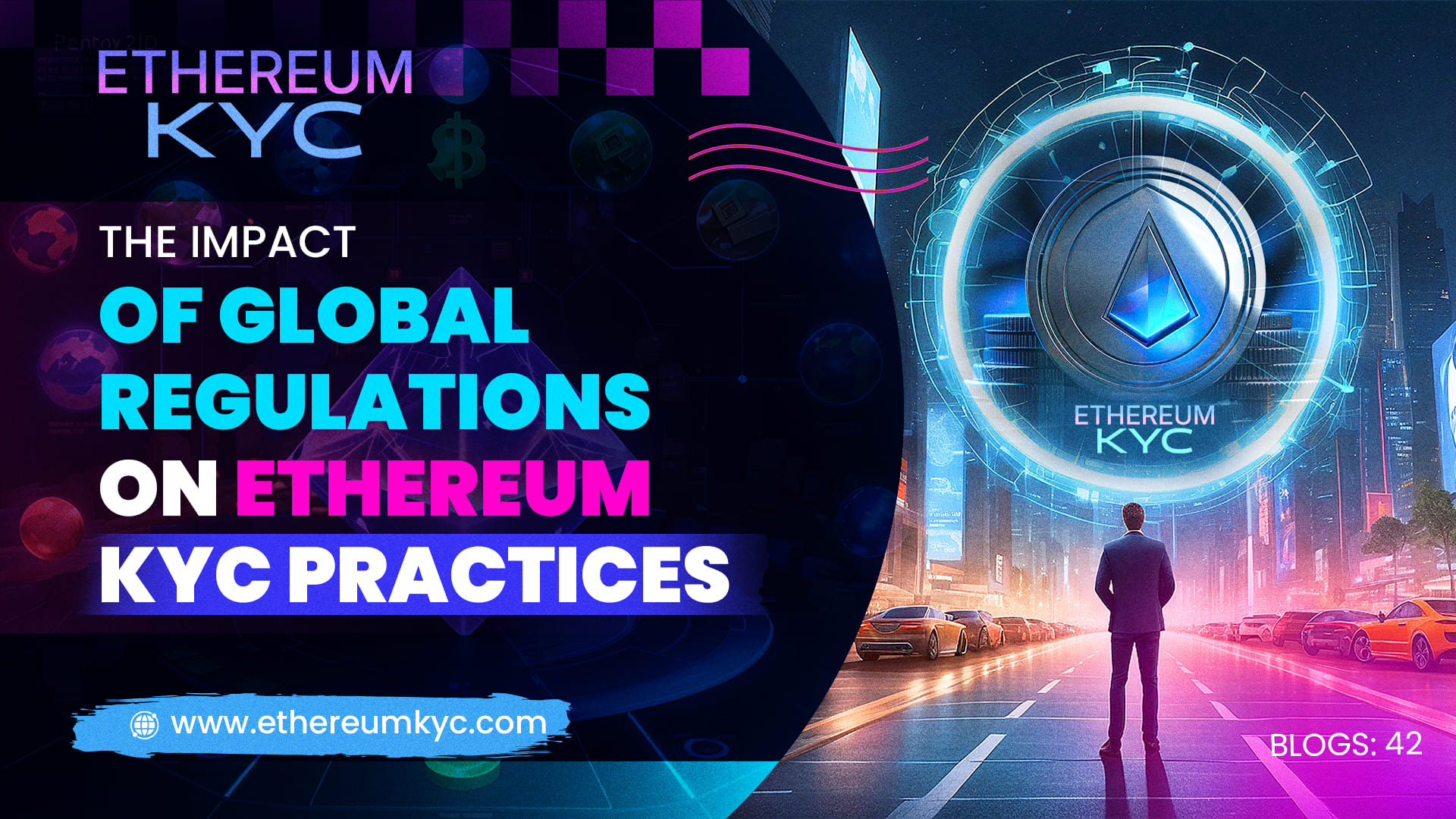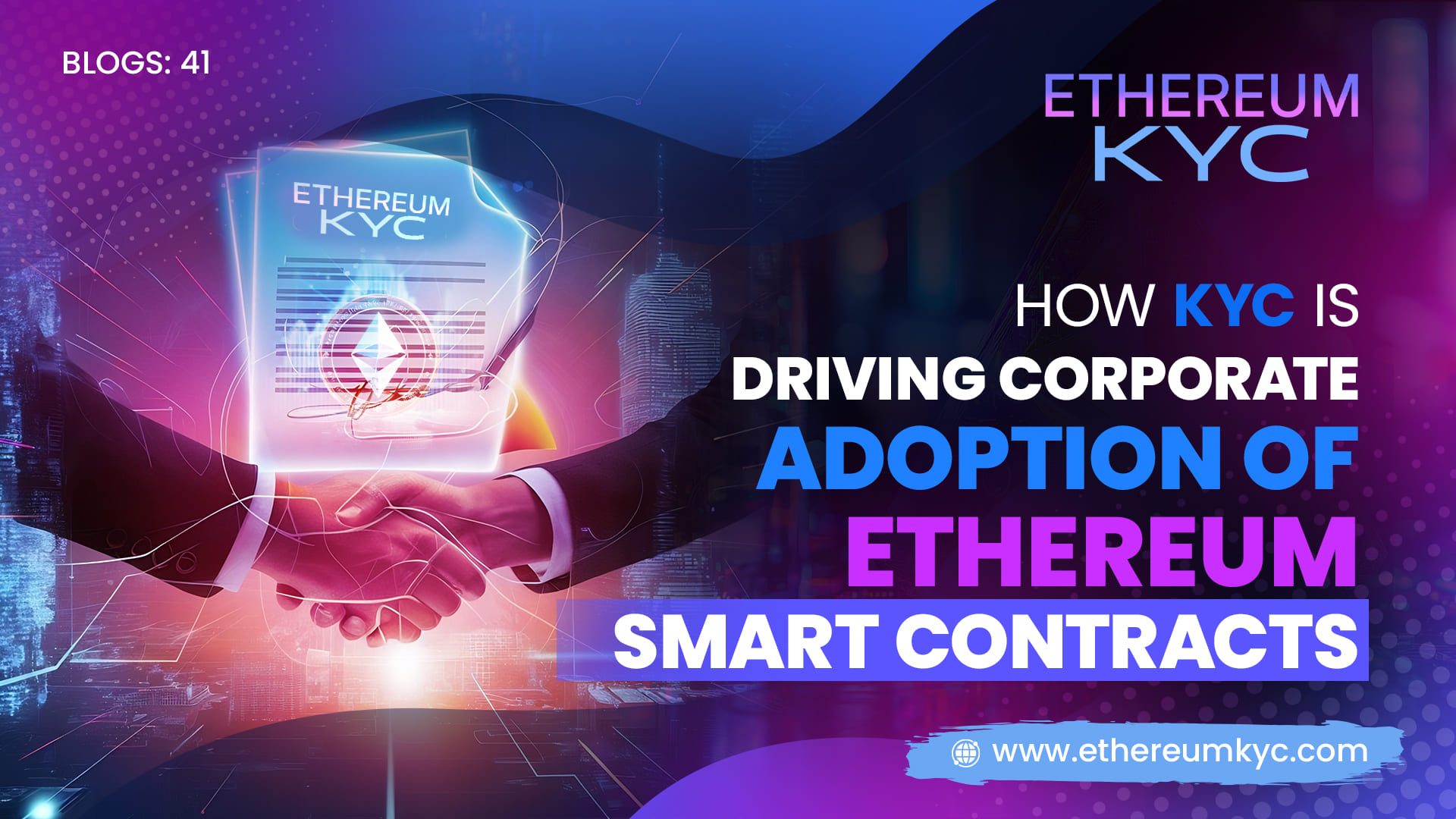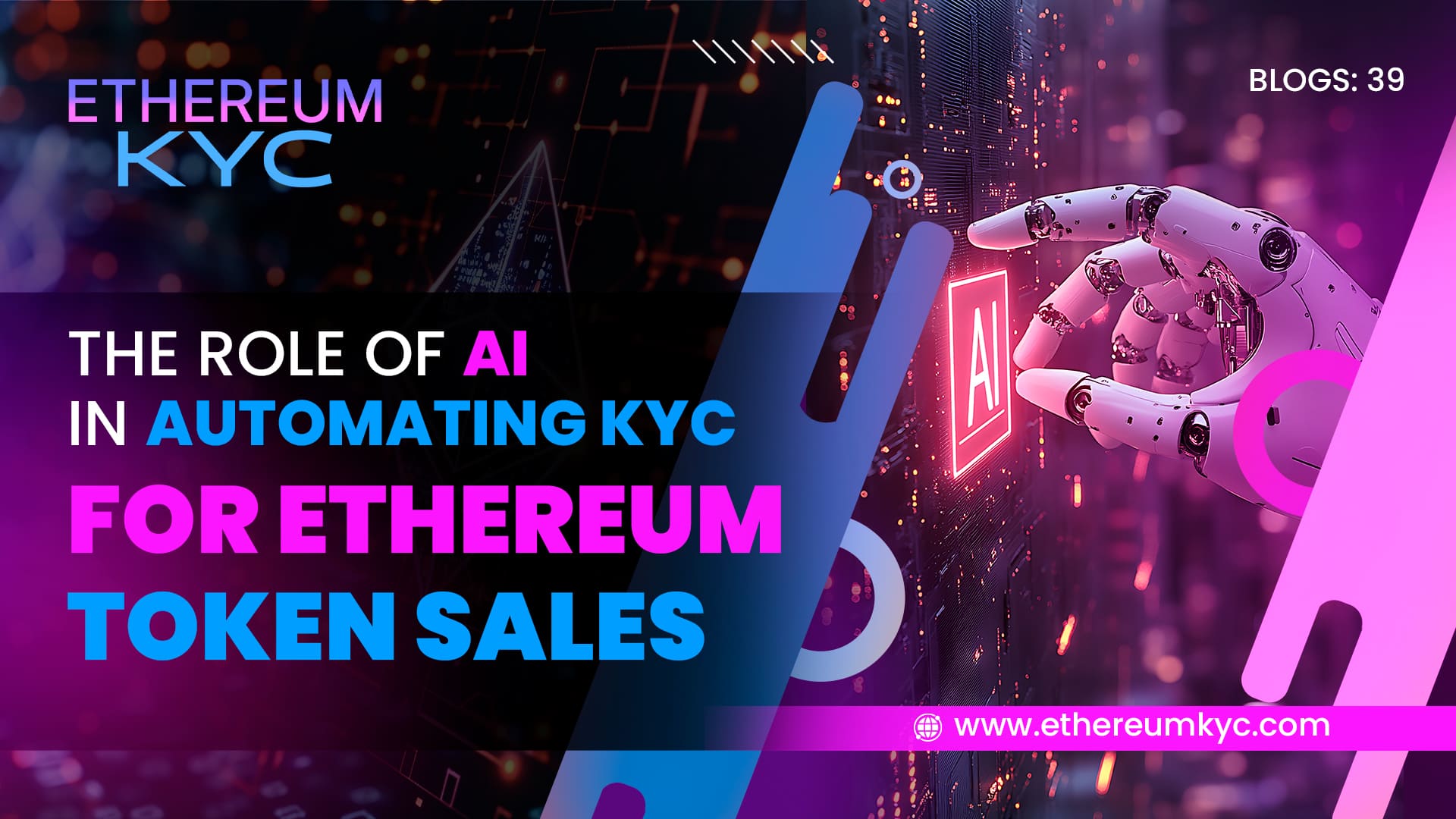January 28, 2025
KYC’s Role in Strengthening DAO Governance on Ethereum
Decentralized Autonomous Organizations (DAOs) have emerged as a groundbreaking model for community-led decision-making on the Ethereum blockchain. As these organizations grow in scale and influence, ensuring robust governance becomes increasingly critical. One pivotal tool in fortifying DAO governance is the implementation of Know Your Customer (KYC) protocols. By integrating KYC into DAO frameworks, organizations can enhance transparency, accountability, and security—key factors in maintaining trust among stakeholders and ensuring effective decision-making.
The Evolution of DAO Governance
DAOs represent a significant shift from traditional hierarchical management to decentralized, democratic systems where token holders have a direct say in governance. However, as DAOs expand, they often face challenges such as identity verification, fraudulent voting, and conflicts of interest. These issues can undermine the integrity of the decision-making process and threaten the organization’s long-term viability.
Why KYC is Essential for DAO Governance
Enhancing Transparency and Trust
Implementing KYC measures within a DAO provides a verifiable method for confirming the identity of participants. This transparency ensures that only legitimate stakeholders are involved in critical governance decisions, thereby reducing the risk of vote manipulation or fraudulent activities. When members know that their counterparts have been properly verified, trust is bolstered, fostering a more collaborative environment.
Preventing Sybil Attacks and Voting Manipulation
One of the most pressing concerns for DAOs is the risk of Sybil attacks, where a single entity creates multiple identities to gain undue influence over governance decisions. KYC processes help mitigate this risk by ensuring that each participant is uniquely identified. With a robust identity verification system in place, DAOs can better enforce “one person, one vote” principles, ensuring that governance outcomes are more representative and fair.
Promoting Regulatory Compliance
As DAOs increasingly interact with traditional financial systems and larger institutional investors, adherence to regulatory standards becomes crucial. KYC protocols help DAOs align with global compliance requirements by verifying the identities of their participants. This not only safeguards the organization against potential legal issues but also paves the way for broader collaboration with traditional financial institutions, further legitimizing the DAO model.
Facilitating Informed Decision-Making
When DAO members are verified through KYC, it creates an environment where decision-making is based on accountability and informed participation. Stakeholders can be more confident that votes and proposals are coming from verified individuals with a vested interest in the organization’s success. This leads to more thoughtful and effective governance, which is essential for the sustainability of the DAO.
Implementing KYC in DAOs: Best Practices
Decentralized Identity Solutions
Integrating decentralized identity (DID) frameworks can offer a balanced approach to KYC in DAOs. By leveraging blockchain-based identity solutions, DAOs can verify identities without compromising user privacy. These systems allow members to control their personal data while still meeting verification requirements.
Tiered Verification Systems
Not all DAO activities require the same level of identity verification. Implementing a tiered KYC system can ensure that higher-stakes decisions or voting on sensitive issues undergo more rigorous checks, while more routine participation remains accessible. This approach can maintain the openness of the DAO while securing critical governance processes.
Continuous Monitoring and Auditing
KYC should not be a one-time process. DAOs can benefit from ongoing monitoring and periodic audits of their member base to ensure continued compliance and address any emerging issues. This proactive approach helps maintain the integrity of the governance process over time.
The Future of DAO Governance on Ethereum
As DAOs continue to evolve, the integration of KYC protocols is likely to become a standard practice. By striking the right balance between decentralization and regulatory compliance, DAOs can foster an environment of trust and accountability that not only protects their integrity but also drives innovation. In the long run, KYC-enhanced governance may prove essential for attracting institutional investors and scaling DAO operations on Ethereum.
Conclusion
KYC plays a pivotal role in strengthening DAO governance by enhancing transparency, preventing fraudulent practices, and ensuring regulatory compliance. As DAOs strive to balance decentralization with the need for secure and effective decision-making, integrating robust KYC measures will be key to their long-term success. Embracing these protocols can help DAOs build a more resilient, trustworthy, and efficient governance framework, paving the way for a new era of decentralized collaboration on Ethereum.
